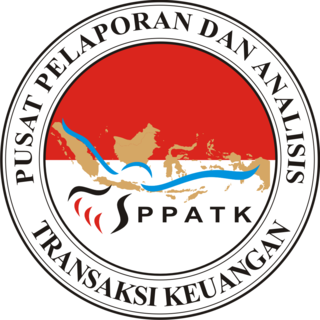| Company type | International Cooperative |
|---|---|
| Industry | Professional services |
| Founded | 2005, by Marc Hürner |
| Headquarters | Brussels, Paris, Geneva |
Area served | Worldwide |
Key people | Marc Hürner (Switzerland), Hervé Zany (Paris) |
| Services | Financial intelligence and Business intelligence |
| Website | www.fipcor.com |
Financial Intelligence & Processing (FIP) is an international firm based in Paris offering financial and business intelligence.
In 2011 and 2012, FIP was listed among the top experts of financial fraud investigation in France, just after KPMG, as assessed by Décideurs Stratégie Finance Droit in the "Risk Management, Insurance and Litigation" yearly guide. [1]
FIP was formed in 2005 by combining the skills of experts in the areas of financial engineering, fraud examination and investigation. FIP relies on the skills and experiences of its consultant teams spread across its three European locations (Brussels, Paris and Geneva). It has built an international network of correspondents leading them to work in jurisdictions such as China, DR Congo, Dubai, the USA, Guinea, Iraq, Morocco, Russia, [2] [3] Turkey or Vietnam.
Among others, their experience led them to work for the heiress of the Agnelli empire and to look for the "secretive treasures" of her father, Gianni Agnelli. [4] [5]
FLS was cited in the "affaire AEF-Ockrent" [6]
Called the "James Bond of financial circuits", [7] [8] Marc Hürner founded FIP to provide clients with his experience (in Ernst & Young, KPMG among others) and investigative skills in all matters related to the prevention and detection of fraud, tax evasion schemes and counterfeit, and the reinforcement of internal controls.
Hervé Zany, director of the French FIP office, is a recognized expert in anti-fraud. He worked for KPMG and directed the Kroll office of Paris.

Organized crime is a category of transnational, national, or local group of centralized enterprises run to engage in illegal activity, most commonly for profit. While organized crime is generally thought of as a form of illegal business, some criminal organizations, such as terrorist groups, rebel forces, and separatists, are politically motivated. Many criminal organizations rely on fear or terror to achieve their goals or aims as well as to maintain control within the organization and may adopt tactics commonly used by authoritarian regimes to maintain power. Some forms of organized crime simply exist to cater towards demand of illegal goods in a state or to facilitate trade of goods and services that may have been banned by a state. Sometimes, criminal organizations force people to do business with them, such as when a gang extorts protection money from shopkeepers. Street gangs may often be deemed organized crime groups or, under stricter definitions of organized crime, may become disciplined enough to be considered organized. A criminal organization can also be referred to as an outfit, a gang, crime family, mafia, mob, (crime) ring, or syndicate; the network, subculture, and community of criminals involved in organized crime may be referred to as the underworld or gangland. Sociologists sometimes specifically distinguish a "mafia" as a type of organized crime group that specializes in the supply of extra-legal protection and quasi-law enforcement. Academic studies of the original "Mafia", the Italian Mafia, generated an economic study of organized crime groups and exerted great influence on studies of the Russian mafia, the Chinese triads, the Hong Kong triads, and the Japanese yakuza.

The Institute for the Works of Religion, commonly known as the Vatican Bank, is a financial institution that is situated inside Vatican City and run by a Board of Superintendence, which reports to a Commission of Cardinals and the Pope. It is not a private bank, as there are no owners or shareholders; it has been established in the form of a juridical canonical foundation, pursuant to its statutes. Since 9 July 2014, its president is Jean-Baptiste de Franssu. The IOR is regulated by the Vatican's financial supervisory body ASIF.

Forensic accounting, forensic accountancy or financial forensics is the specialty practice area of accounting that investigates whether firms engage in financial reporting misconduct, or financial misconduct within the workplace by employees, officers or directors of the organization. Forensic accountants apply a range of skills and methods to determine whether there has been financial misconduct by the firm or its employees.
Racketeering is a type of organized crime in which the perpetrators set up a coercive, fraudulent, extortionary, or otherwise illegal coordinated scheme or operation to repeatedly or consistently collect a profit.
The Certified Fraud Examiner (CFE) is a credential awarded by the Association of Certified Fraud Examiners (ACFE) since 1989. The ACFE association is a provider of anti-fraud training and education. Founded in 1988 by Dr. Joseph T Wells. The ACFE established and administers the Certified Fraud Examiner (CFE) credential.

The National Bureau of Investigation (NBI) is a national law enforcement agency of the Finnish Police and the principal criminal investigation and criminal intelligence organization of Finland. The Bureau's main tasks are to counter and investigate organized crime, provide expert services, and develop methods for criminal investigation. NBI is also responsible for financial intelligence (FININT), such as preventing money laundering and terrorism financing. NBI headquarters has been situated in the city of Vantaa within the Capital Region since 1994 with field offices in Tampere, Turku, Mariehamn, Joensuu, Oulu and Rovaniemi. It is subordinate to the National Police Board under the jurisdiction of the Interior Ministry.

Internal Revenue Service, Criminal Investigation (IRS-CI) is the United States federal law enforcement agency responsible for investigating potential criminal violations of the U.S. Internal Revenue Code and related financial crimes, such as money laundering, currency transaction violations, tax-related identity theft fraud and terrorist financing that adversely affect tax administration. While other federal agencies also have investigative jurisdiction for money laundering and some Bank Secrecy Act violations, IRS-CI is the only federal agency that can investigate potential criminal violations of the Internal Revenue Code, in a manner intended to foster confidence in the tax system and deter violations of tax law. Criminal Investigation is a division of the Internal Revenue Service, which in turn is a bureau within the United States Department of the Treasury.

Financial crime is crime committed against property, involving the unlawful conversion of the ownership of property to one's own personal use and benefit. Financial crimes may involve fraud ; theft; scams or confidence tricks; tax evasion; bribery; sedition; embezzlement; identity theft; money laundering; and forgery and counterfeiting, including the production of counterfeit money and consumer goods.
Forensic accountants are experienced auditors, accountants, and investigators of legal and financial documents that are hired to look into possible suspicions of fraudulent activity within a company; or are hired by a company who may just want to prevent fraudulent activities from occurring. They also provide services in areas such as accounting, antitrust, damages, analysis, valuation, and general consulting. Forensic accountants have also been used in divorces, bankruptcy, insurance claims, personal injury claims, fraudulent claims, construction, royalty audits, and tracking terrorism by investigating financial records. Many forensic accountants work closely with law enforcement personnel and lawyers during investigations and often appear as expert witnesses during trials.

The California Department of Justice is a statewide investigative law enforcement agency and legal department of the California executive branch under the elected leadership of the Attorney General of California (AG) which carries out complex criminal and civil investigations, prosecutions, and other legal services throughout the US State of California. The department is equivalent to the state bureaus of investigation in other states.

Honest services fraud is a crime defined in 18 U.S.C. § 1346, added by the United States Congress in 1988, which states "For the purposes of this chapter, the term scheme or artifice to defraud includes a scheme or artifice to deprive another of the intangible right of honest services."

Corruption is an increasing issue across Canada. On Transparency International's 2023 Corruption Perceptions Index, Canada scored 76 on a scale from 0 to 100. When ranked by score, Canada ranked 12th among the 180 countries in the Index, where the country ranked first is perceived to have the most honest public sector. For comparison with worldwide scores, the best score was 90, the average score was 43, and the worst score was 11. For comparison with regional scores, Canada's score of 76 was the highest score among the countries of the Americas. Regionally, the average score was 43 and the lowest score was 13.
Certified in Financial Forensics (CFF) is a specialty credential in financial forensics issued in the United States by the American Institute of Certified Public Accountants (AICPA). In Canada, the CFF credential is granted by the Chartered Professional Accountants of Canada.
The Garda National Economic Crime Bureau – informally known as the Fraud Squad – is a specialised division of Ireland's national police force, the Garda Síochána, that investigates economic crimes. The Bureau operates as part of the Garda Special Crime Operations branch and works alongside other sections of the force, as well as the external Office of the Director of Corporate Enforcement (ODCE), an agency tasked with investigating white-collar crime. The Economic Crime Bureau is responsible for the investigation of serious financial fraud and corruption. It was established in April 1996 and is based at Harcourt Square, Dublin 2. The GNECB is headed by an officer of Detective Chief Superintendent rank, who reports to the Assistant Commissioner of Special Crime Operations.

The Indonesian Financial Transaction Reports and Analysis Center or INTRAC or PPATK is a government agency of Indonesia responsible for financial intelligence. The agency was formed in 2002 to counter suspected money laundering and provide information on terrorist financing.

The General Commissariat of Judiciary Police is an intelligence service within the National Police Corps of Spain responsible for the investigation of organized crime, economic and monetary crimes or cybercrime. CGPJ is also in charge of investigating drug trafficking, gambling control and collecting intelligence for the police corps.
Bougartchev Moyne Associés AARPI is a French law firm founded in 2017 by Kiril Bougartchev and Emmanuel Moyne of Linklaters. The firm represents clients in white-collar crime, regulatory and commercial disputes, and provides compliance or investigations programs. With clients varying from major financial institutions and industrial and insurance companies to individuals, publications such as Décideurs, Legal 500, and Chambers Europe have ranked the firm among the best in Europe and France.

The Basel Institute on Governance is an independent, international non-profit organisation dedicated to preventing and combating corruption and other financial crimes and to strengthening governance around the world. The organisation was established in Basel, Switzerland in 2003 by Professor Mark Pieth.
The Fraud Advisory Panel is a UK charitable organisation. Incorporated in 2001, the Panel focuses on offering advice and education to the general public on how to mitigate and avoid fraud. Panel members have provided evidence to the House of Commons Treasury Select Committee and frequently participate in government consultations and commentary on the television, radio, and newspapers.
Artificial intelligence is used by many different businesses and organizations. It is widely used in the financial sector, especially by accounting firms, to help detect fraud.